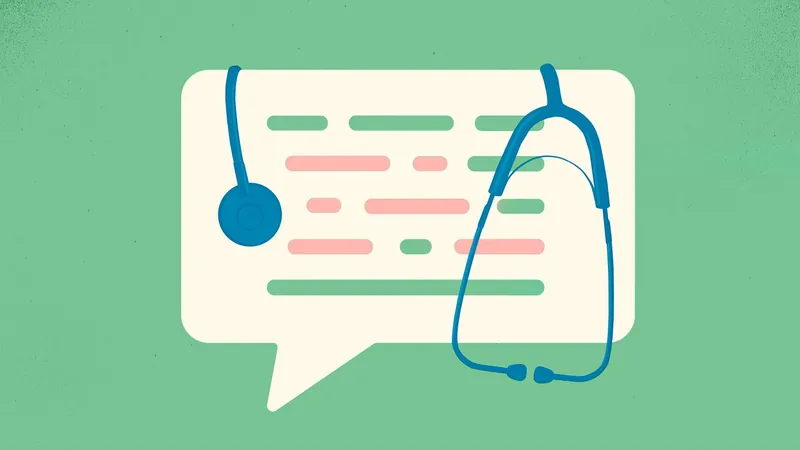
The Crucial Words Doctors Should Avoid with Patients
2024-11-19
Author: Benjamin
In the world of medicine, words carry immense power—especially when health professionals communicate with patients and families confronted with distressing diagnoses. A recent survey has spotlighted phrases that can not only mislead but also hinder the healing process, creating an environment of mistrust and confusion.
Words to Avoid
Here’s a breakdown of phrases that healthcare providers should steer clear of:
1. “There is nothing else we can do.”
2. “She will not get better.”
3. “Withdrawing care.”
4. “Circling the drain.”
5. “Do you want us to do everything?”
6. “Everything will be fine.”
7. “I don’t know why you waited so long to come in.”
8. “What were your other doctors doing/thinking?”
Rosanne M. Leipzig, MD, PhD, a palliative care expert, highlights that when doctors use dismissive or blunt language, patients can feel neglected or undervalued. Such communication can erode trust and prevent patients from engaging fully in their treatment plans.
The consequences of insensitive language extend beyond mere upset; studies indicate that it may lead to patients rejecting treatment options or pursuing care that does not align with their values and wishes.
The Impact of Dismissive Language
To better understand harmful phrases, researchers gathered feedback from physicians, asking them to identify "never words" and suggest compassionate alternatives aimed at fostering respectful communication and open dialogue.
For instance, the phrase **“There’s nothing else we can do”** can imply hopelessness. Instead, physicians should focus on symptom management and quality of life improvements, stating something like, **“While the current treatment has not been effective, let’s explore other options to enhance your comfort and well-being.”**
Likewise, stark statements such as **“She will not get better”** and **“withdrawing care”** can come off as callous. A more empathetic approach would be to express concern about the prognosis while discussing potential next steps to ensure the patient receives care that emphasizes dignity and comfort.
The Trouble with False Positivity
Telling patients generically that **“everything will be fine”** is equally unhelpful. This kind of false reassurance can leave them feeling betrayed if reality takes a turn for the worse. A better alternative might be, **“I’m here to support you through this challenging journey.”** This not only provides comfort but also reassures patients that they won’t face their battles alone.
As Kevin J. O'Leary, MD, advises, healthcare providers must allow patients the emotional space to process their feelings and queries, recognizing the emotional toll that serious illnesses can impose.
Avoiding Judgment in Care Discussions
Importantly, doctors must refrain from making patients feel judged about their previous care decisions, such as questioning why they delayed seeking help. This judgment can exacerbate feelings of shame or anxiety. Instead, healthcare providers could opt for more supportive language like, **“I’m glad you came in when you did,”** directing the focus on constructive solutions rather than past choices.
In conclusion, the way doctors communicate can either elevate the patient experience or significantly undermine it. Caregivers must fully grasp the impact of their words and strive for language that not only informs but also uplifts.
The Takeaway
Choice of words in medical conversations is critical; fostering an atmosphere of trust, respect, and comfort can lead to better patient outcomes and satisfaction. Remember, a compassionate approach can transform a daunting healthcare experience into a collaborative journey towards healing.









 Brasil (PT)
Brasil (PT)
 Canada (EN)
Canada (EN)
 Chile (ES)
Chile (ES)
 España (ES)
España (ES)
 France (FR)
France (FR)
 Hong Kong (EN)
Hong Kong (EN)
 Italia (IT)
Italia (IT)
 日本 (JA)
日本 (JA)
 Magyarország (HU)
Magyarország (HU)
 Norge (NO)
Norge (NO)
 Polska (PL)
Polska (PL)
 Schweiz (DE)
Schweiz (DE)
 Singapore (EN)
Singapore (EN)
 Sverige (SV)
Sverige (SV)
 Suomi (FI)
Suomi (FI)
 Türkiye (TR)
Türkiye (TR)